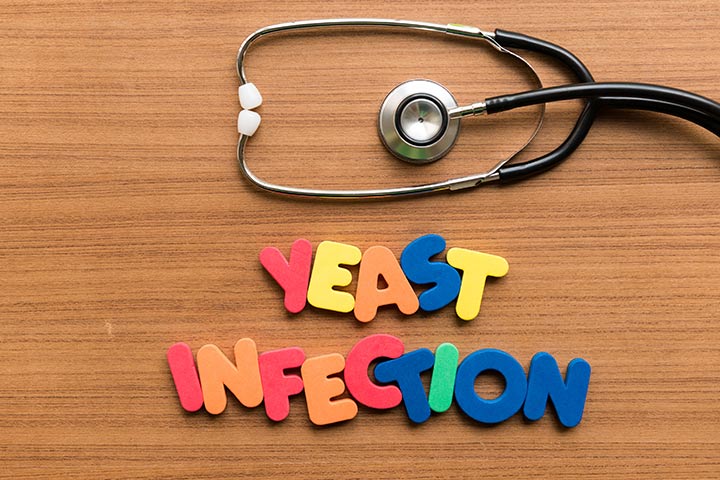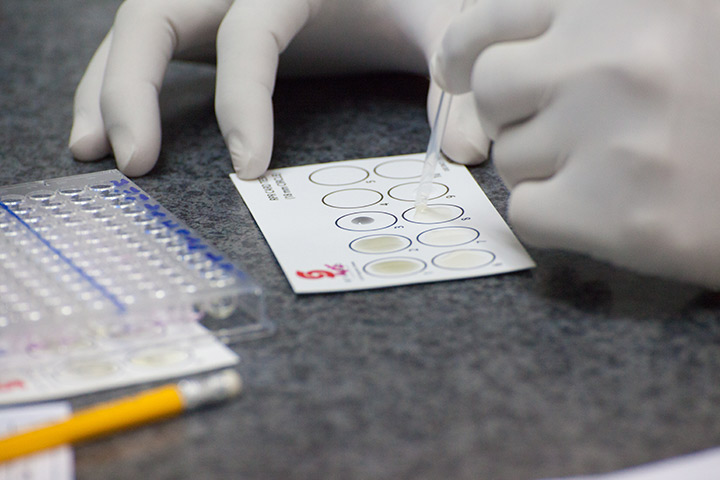
Image: Shutterstock
There are drastic hormonal changes that a body goes through during pregnancy, which can overwhelm the entire reproductive system. Thus, at times, expecting mothers may be prone to a number of vaginal infections. In fact, mild ones might be pretty common for some women during this phase. But, the silver lining is that most of these infections can be easily treated if detected in time. So, it becomes important to be on a lookout for particular symptoms. Here, we discuss some of these vaginal infections:
1. Bacterial Vaginosis
Out of all the vaginal infections, pregnant women are more likely to get the Bacterial Vaginosis (BV). This happens as a result of a bacterial overgrowth in the vagina. And, this needs to be treated in time to avoid any unwanted complications during pregnancy (1). You need to look out for the following symptoms:
- The vaginal discharge seems unusual, be it gray, watery, or foamy.
- The odor is fish-like and strong.
- Burns during urination.
- Itches down there.
Since the symptoms are similar to yeast infection, the culture needs to be confirmed for BV first. At times, BV goes away by itself. But, if the symptoms continue, docs will prescribe some antibiotics accordingly.
2. Yeast Infection
While women are generally prone to yeast infection, the likelihood increases even more during pregnancy. This happens as a result of a fungal overgrowth down there. Though a yeast infection usually doesn’t result in complications during pregnancy, it does become more difficult to control. So, keep looking out for these symptoms and consult a doc if needed (2):
- Redness, burning, and swelling down there.
- Hurts during lovemaking and urination.
- Soreness in the lady parts.
3. Urinary Tract Infection
Also known as a bladder infection, UTI happens as a result of bacterial inflammation in the urinary tract. And, expecting mothers are usually at a high risk for this infection between their 6th and 24th week of gestation. During pregnancy, the urinary tract undergoes a lot of changes, making women more prone to UTI. The uterus is positioned right above the bladder. And, the growing baby bump results in an increased pressure, thus trapping the urine in the bladder, leading to UTI. Here are the symptoms to look out for (3):
- Burning sensation or pain during urination.
- Mucus or blood present in urine.
- Feeling a sense of urgency before urinating.
- Cloudy looking urine, which has a strong and foul odor.
4. Trichomoniasis
A common sexually transmitted disease (STD), this infection occurs due to a protozoan parasite, known as Trichomonas vaginalis. There is only 30 percent of people who exhibit any symptom. But, even if some people don’t show any symptom, they can still transmit the infection. It is important to treat Trichomoniasis in time as it can cause unwanted complications otherwise. Here are the signs (4):
- Soreness, redness, burning, or itching in the lady parts.
- A sense of discomfort during urination.
- The vaginal discharge isn’t consistent, be it white, clear, greenish, or with an odd fishy odor.
5. Syphilis
This is an STD that can have harmful long-term effects if not treated. This can get transmitted from mother to baby at the time of pregnancy. This can result in premature birth or miscarriage, among others. And, if passed onto the infant, it can cause medical conditions such as nervous system issues, skin rashes, or meningitis. Given the damages it can cause, it is vital to treat syphilis on time. Here are some of the signs you can look out for (5):
- Skin rash that doesn’t itch.
- Fever, headaches, fatigue, and joint pains.
- Both weight and hair loss.
- Lymph glands become swollen.
Keep going for regular tests as it is essential to detect syphilis in time. This can be treated with a course of antibiotics. If you are confirmed positive for syphilis, seek help from a medical professional immediately.
Don’t let this stress you. Just reach out to a doc if you notice any of these symptoms. A medical professional will know what to do; he/she will be able to help you out just right. Good luck!

















